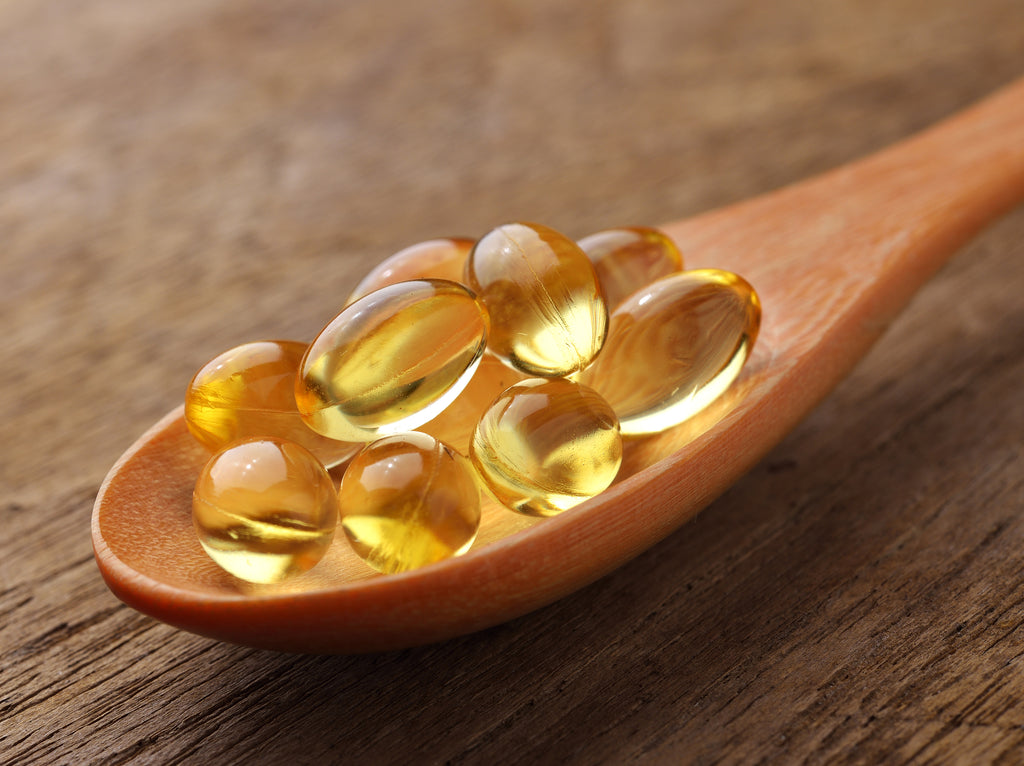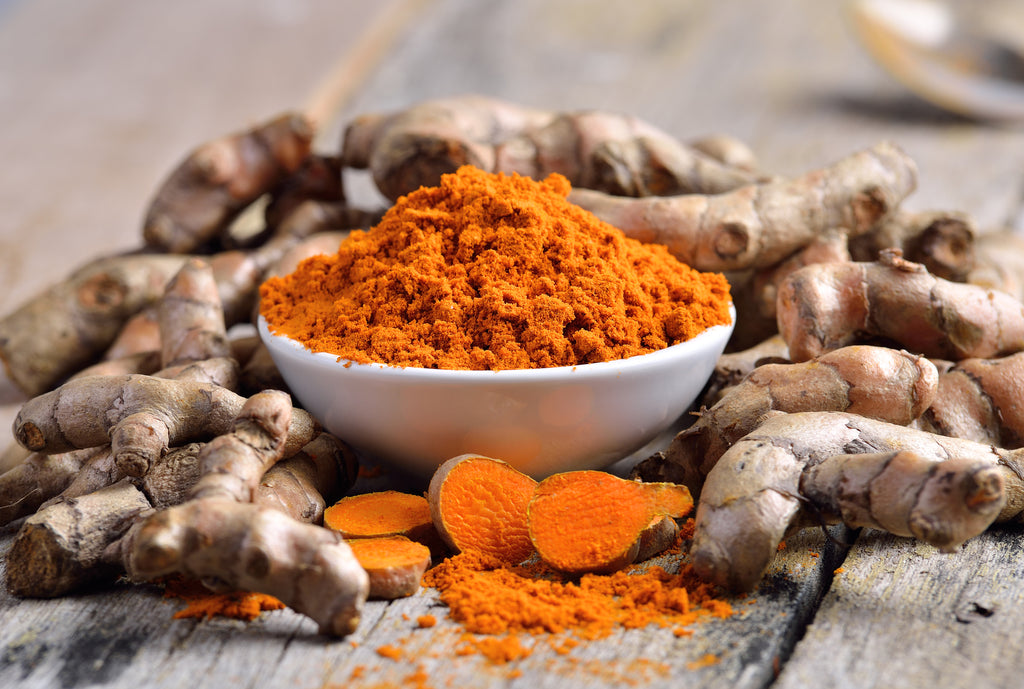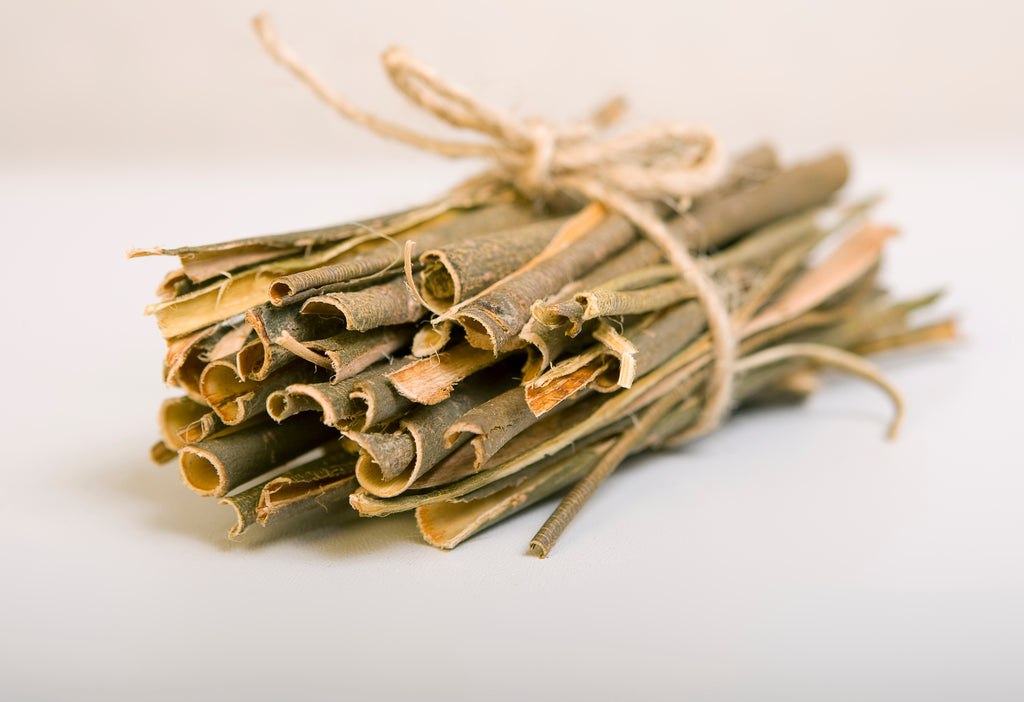The Best Supplements to Stop Inflammation NOW [Updated 2019]
“Hrrmmmmmm. GRRRRR. AHHHH. OHHHHH.” - You every morning getting out of bed
If the sounds you used to make when “busy” in bed are now the sounds you make getting out of it, fast-acting anti-inflammatory supplements may help reduce pain, improve mobility, and make your wife happier (so could not throwing your dirty socks all over the bedroom, but we digress…).
While diet, nutrition, and lifestyle (stress, exercise, etc.) play a major role, these anti-inflammatories can be a big help… and a few start to work faster than you think.
7 Scientifically Proven Supplements to Reduce Inflammation
Alpha-Lipoic Acid (ALA)
ALA is a powerful antioxidant that helps recycle vitamin E and C and keeps you looking and feeling younger, healthier, and more vibrant [1]. But science has shown that it could have major implications for sufferers of an overactive inflammatory response as well.
This organic compound is produced in the mitochondria—the powerhouse of your cells—and works in every cell or tissue of your organism. It feeds your body everything it needs to improve mitochondrial function, helping you become more spry, slim, and youthful.
The result is a healthier you with better nerve function, regulated blood pressure, young and healthy cells, and a thinner waist:
Dosage and Supplementation Advice: 300-600 mg per day yields benefits with no side effects. Your body naturally produces some alpha-lipoic acid and you should get the rest from your diet, but some supplements contain 1,000 times the amount of ALA found in food.
Fish Oil (Omega-3’s)

Omega-3 fatty acids (mostly consumed from fish) are nature’s anti-inflammation super supplement. Ever wonder why the Japanese have the most centenarians in the world? And, no, it’s not because of endless bowls of ramen and sake bombs. They eat A TON OF FISH.
Omega-3s fundamentally alter your body’s inflammatory response by dampening inflammation signals in macrophages (immune cells that live in all tissues and organs) via activating autophagy (your body’s cell-sponsored recycling program) [7].
Science Has Shown Omega-3s Can Relax Your Inflammatory Response
Omega-3s act like a stiff drink for your overacting macrophages. Sometimes, these cells flip out over the tiniest thing, sending your body into panic mode. You suffer the side effects of these manic macrophages: swollen joints, back pain, fever, and chronic disease.
But when your cells drink omega-3s, they go into chill mode and know that everything's gonna be OK (ahhhh, liquid relief). The result? Mobile hips, clear nasal passageways, and a head free from heat.
Omega-3s have held up against rigorous testing and demonstrated benefits for every facet of your health from regulating cardiovascular health to promoting healthy joints [8]. They can even help you get that stubborn belly fat under control [9].
If you’re especially prone to stress, this provocative study should be of interest. It’s been proven that your job, media, traffic, caffeine and the rest of your daily regimen produce pro-inflammatory substances in your body (“cytokines”). The study examined 27 medical students under stress due to exams. The result concluded that those with lower omega-3 levels suffered from an exaggerated pro-inflammatory response. This suggests that increased omega-3’s can help keep stress-induced inflammation in check, making those long days at work less of a burden on your mind and body [10].
Cool bonus - Fish oil contains DHA, a supplement that has proven to reduce inflammation after vigorous exercise. It’s commonly used by athletes who want to train longer and recover faster [11]. Another study conducted on untrained men found DHA reduced some indicators of muscle damage post-workout [12].
How Much Fish Oil Should You Take?: Fish oil dosage depends on your goals. For general health, the American Heart Association recommends 1 g daily. When taken as an anti-inflammatory, dosage can go as high as 6 g spread across the day. If your diet is high in red meat, counteract that by heading down to your local Japanese restaurant and eating fresh fish (without sake bombs, ideally).
Curcumin & Turmeric

Turmeric and curcumin fight inflammation and all of the evil that comes along with it (as well as give curry its golden brown color).
Actually, curcumin is just a component of turmeric—a delicious spice used in everything from Thai cosmetics to Indian dishes (hmhmhmhmh veggie korma!). Without getting into the nitty-gritty white lab coat language, these two work in tandem to block molecules that act as inflammatory signals, thereby preventing (or at least reducing) inflammation.
What Does Science Say?
In one study, three 500 mg doses of curcumin significantly affected pain and function scores in a positive way for patients suffering from arthritis in the knees [13]. It may even be powerful enough to compete with anti-inflammatory drugs and it doesn’t have any harmful side effects [14].
In another fascinating study, subjects benefitted from reduced inflammatory markers and reported significant improvements in quality of life from just 150 mg of turmeric [15].
Let’s put it this way: curcumin can be just as effective as anti-inflammatory drugs and it has NO SIDE EFFECTS at recommended doses. Plus, it does things you simply can’t do with ibuprofen (though we’ve never tried to season korma with OTC drugs…).
The only downside is that curcumin IS NOT bioavailable, so you’ve got to take something else with it. Black pepper does the trick [16]. Ready your breakfasts and eat hearty, men. Tonight, we dine inflammation free.
Turmeric vs. Curcumin: Which is Better? Is There a Difference?
There’s a lot of confusion over the turmeric vs curcumin debate, so we want to set the record straight. Turmeric is a spice. Curcumin is a compound found in turmeric that has a ton of proven health benefits.
Feel free to put turmeric on EVERYTHING. We do. We’re cool. Be like us. But if you want all of the anti-inflammatory benefits, take a supplement made of curcumin extract or take a complex that contains curcumin which is specifically made to fight inflammation (If that sounds good to you, read below this article).
Turmeric/Curcumin Dosage: As we said, your body can’t absorb curcumin well, so take 500 mg of it with 20 mg of piperine (black pepper). Feel free to spice up everything with turmeric (we aren’t sure of the health benefit there, we just LOVE IT).
Ginger
Ginger might be the only entry on this list that has a hit metal song written in its honor… or not.
But still, ginger is an all-natural painkiller (\m/) that’s proven to do everything from reduce muscle pain during exercise [17] to help patients with osteoarthritis move their knees again [18].
Ginger also inhibits inflammatory cytokines and prostaglandins (compounds made at the sites of infection that cause inflammation) [19]. Its main strength is inhibiting the elevated expression of NF-kappaB, a protein that swells up anything and everything when he gets mad and is linked to diabetes, arthritis, asthma, and the big “C.”
That means if there’s a reason to get swole (#gymlife), your immune system will still work. But if there isn’t, it’ll have a hard time making your life a living hell. Ancient cultures used ginger for everything from garnish (gai pad khing!) to an immune system booster.
It also has powerful anti-allergen benefits [20], so you can hit the high notes in PAINKILLER as you sing the praises of ginger with horns raised.
How Much Ginger Should You Take?: Most anti-inflammatory studies used 2 g of ginger. You can get it from a capsule, in tea, as a syrup, or even as an ingredient in food. Eat up!
Honorable Mentions
Boswellia (Frankincense)

“The Three Magi brought him gold (for kingship), myrrh (a symbol for death), and frankincense (for joint and back pain)” - Anti-inflammiticus 3:16
Boswellia serrata has been in use since time immemorial in India as both an incense and a do-it-all supplement for stomach bugs, inflammation, and immunity.
Science is also starting to burn this resin and is discovering some crucial benefits for our joints and organs.
First, Boswellia contains boswellic acid, a compound that fights inflammation by inhibiting leukotriene synthesis [21]. Either the resin itself or acids have proven effective in promoting respiratory health and regulating your digestive system [22].
If this hasn’t convinced you to start rubbing your face on every tree you find in Punjab, patients with knee pain all reported a decrease in pain, more flexibility, and greater walking distance sans pain after treatment with Boswellia compared to a placebo [23].
Dosage: If you’re using the resin itself, the dosage varies from 800 - 1,800 mg thrice daily. If using a supplement made from extract, a few hundred milligrams will do fine.
And if you aren’t satisfied with just resin from a tree, it’s time to start eating tree bark… no, seriously…
White Willow Bark

Some bill white willow bark as an all-natural pain killer that’s better than aspirin. That’s really not a fair comparison, as the main painkiller in white willow bark (it’s called salicin) was used to make aspirin in the 1800s.
The ancient Greeks used it to fight fevers and joint pain, and modern science has proven what they knew all along [24]. Salicin inhibits cyclo-oxygenase (1 and 2), the same enzymes targeted by that bottle of Advil. Except this natural anti-inflammatory supplement doesn’t come with the same side effects!
White Willow Bark Dosage: Here’s the thing about salicin: you can get it from a nice tea, but you’d have to drink a pickup truck full of it to get the right dose. Instead, take between 60 - 120 mg in capsule form 3 times per day. If you like the tea, feel free to drink it. Just don’t expect major salicin intake.
Cat’s Claw

NB! Please don't eat Mr. Whiskers and keep reading.
Cat’s claw is a woody vine native to South America that’s been used for centuries for everything from contraception to fighting inflammation. More studies need to be done, but it has proven to protect against oxidative stress AND inhibit the big bad NF-κB [25]. One study done on 40 patients suffering from rheumatoid arthritis showed cat’s claw to be effective at reducing joint pain compared to a placebo [26].
Dosage: You can take cat’s claw as a capsule, powder, or tea. Recommended doses haven’t been established, but the WHO recommends up to 500 mg TOTAL over 3 doses.
The Ultimate Anti-Inflammatory Cocktail to Zen Your Immune System
If your immune system needs to chill, then you could drink tea, eat tree bark, go to a Japanese restaurant 5 times a day, and take ALA capsules with every meal…
Or, you can get all of the most potent anti-inflammatory supplements in their most bioavailable doses in one easy-to-take supplement. This cocktail is specially formulated to help reduce swelling, pain, and agony all while giving you the added benefits of each supplement (anti-allergen, weight optimization, etc.). The best part? No fillers, no fluff, no going to Peru—just pure, anti-inflammatory goodness to help repair the relationship between you and your joints.
It contains:
Are you ready to get out of bed without grunting, growling, and holding your hip? We're in the process of launching this supplement and will be offering discounts for it upon launch. Fill out the form below and we'll let you know when it's time.
References
[1] https://www.ncbi.nlm.nih.gov/pubmed/25620240
[2] https://www.ncbi.nlm.nih.gov/pubmed/26188590
[3] https://www.ncbi.nlm.nih.gov/pubmed/26829711
[4] https://www.ncbi.nlm.nih.gov/pubmed/26829711
[5] https://www.ncbi.nlm.nih.gov/pubmed/15655130
[6] https://www.hindawi.com/journals/omcl/2015/313021/
[7] https://www.sciencedaily.com/releases/2017/08/170823093831.htm
[8] https://www.ncbi.nlm.nih.gov/pubmed/24860193
[9] https://www.ncbi.nlm.nih.gov/pubmed/23034965
[10] https://www.ncbi.nlm.nih.gov/pubmed/10807964
[11] https://www.ncbi.nlm.nih.gov/pubmed/24954162
[12] https://www.ncbi.nlm.nih.gov/pubmed/25029008
[13] https://www.ncbi.nlm.nih.gov/pubmed/24853120/
[14] https://www.ncbi.nlm.nih.gov/pubmed/10404539
[15] https://www.ncbi.nlm.nih.gov/pubmed/24648302
[16] https://www.ncbi.nlm.nih.gov/pmc/articles/PMC3918523/
[17] https://www.ncbi.nlm.nih.gov/pubmed/20418184/
[18] https://www.ncbi.nlm.nih.gov/pubmed/11710709
[19] https://www.ncbi.nlm.nih.gov/pmc/articles/PMC3665023/#ref24
[20] https://www.ncbi.nlm.nih.gov/pubmed/19271742/
[21] https://www.ncbi.nlm.nih.gov/pubmed/8510458
[22] https://www.sciencedirect.com/topics/agricultural-and-biological-sciences/boswellia-serrata
[23] https://www.sciencedirect.com/science/article/pii/S0944711304701890?via%3Dihub
[24] https://www.ncbi.nlm.nih.gov/pubmed/25997859
[25] https://www.ncbi.nlm.nih.gov/pubmed/9882039
[26] https://www.ncbi.nlm.nih.gov/pubmed/11950006